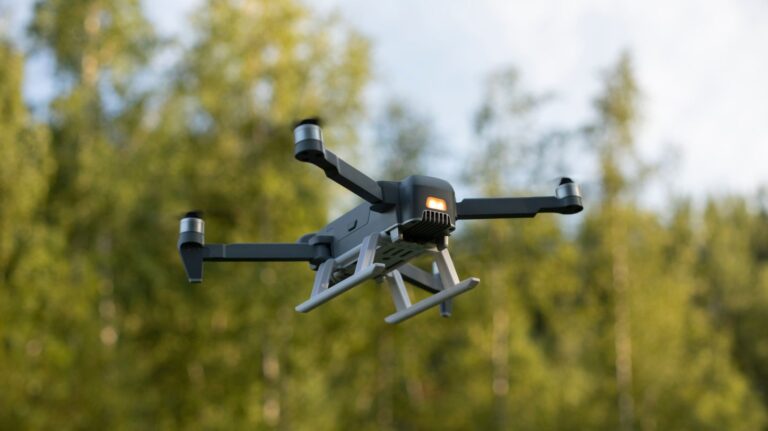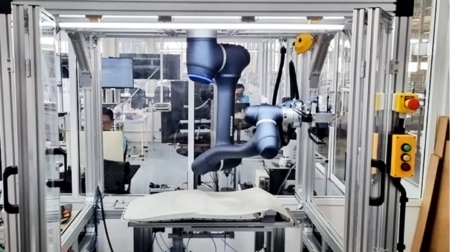The UK government has unveiled more than £20m in funding to accelerate the development and commercialisation of drone services and flying taxis.
The funding which was announced today by aviation minister Mike Kane, aims to remove barriers to growth and create new opportunities for improved public services while cutting carbon emissions.
The investment is designed to enhance aviation technologies in several key areas, including healthcare, law enforcement, infrastructure inspections, and business delivery services.
READ MORE: Drone charging start-up signs agreement with West Northamptonshire Council
It will also focus on reducing costs for these services and contributing to the UK’s environmental sustainability goals.
As part of this initiative, the Department for Transport (DfT), the Civil Aviation Authority (CAA), and the new Regulatory Innovation Office (RIO) within the Department for Science, Innovation, and Technology (DSIT) will work together to streamline regulatory processes. The goal is to support the rapid commercialisation of the drone and flying taxi industries while maintaining high safety standards.
The RIO will play a central role in driving smarter regulations to cut “unnecessary bureaucracy”, helping businesses innovate while ensuring the safety of both unmanned drones and crewed aircraft.
A key part of the plan includes consulting on the mandatory use of new electronic conspicuity standards, allowing aircraft to share their location electronically and ensuring drones and other aircraft can operate safely in the same airspace.
The government is also simplifying airspace change regulations to allow drone operators to safely gather data over extended periods, supporting long-term operational planning. This initiative will enable operators to fly beyond visual line of sight (BVLOS), enhancing the viability of drone services and air taxis in UK skies.
The funding includes £16.5 million allocated to the CAA for 2025-2026. This will be used to create a regulatory programme that facilitates BVLOS flights and the routine use of electric vertical takeoff and landing (eVTOL) aircraft.
Part of this initiative includes developing a “roadmap” for piloted eVTOLs, creating drone pathways for the industry, and consulting on un-crewed traffic management and Detect and Avoid (DAA) technologies. These efforts aim to streamline the approval process and ensure that safety remains a top priority as these technologies are integrated into the UK’s aviation infrastructure.
Additionally, the government is making changes to the regulatory environment to assist emergency services such as firefighters and paramedics in using drones for operations. The regulatory simplification will also provide noise exemptions for drone trials within the Airspace Change Process, facilitating faster deployment of drone services.
The funding will also support the Future of Flight industry group, a collaborative effort between regulators, drone operators, flying vehicle innovators, and local authorities. The group will advise the government on strategies for transforming aviation technology and driving economic growth.
As part of the government’s Plan for Change, the Future Flight Challenge will receive up to £5 million from the DfT and Innovate UK. This funding will support the development of commercial drone and air taxi solutions, including regional demonstrations to showcase the potential benefits of these emerging technologies.
The government’s initiatives are expected to stimulate economic growth, foster innovation, and create new opportunities for businesses while helping to address critical challenges such as emergency response and carbon emissions reduction.
Achievements and innovations in retail and e-commerce, healthcare and pharmaceuticals, food and beverage, automotive, transport & logistics, and more will be celebrated at the Robotics & Automation Awards on 29 October 2025 at De Vere Grand Connaught Rooms in London. Visit www.roboticsandautomationawards.co.uk to learn more about this unmissable event for the UK’s robotics and automation sectors!








